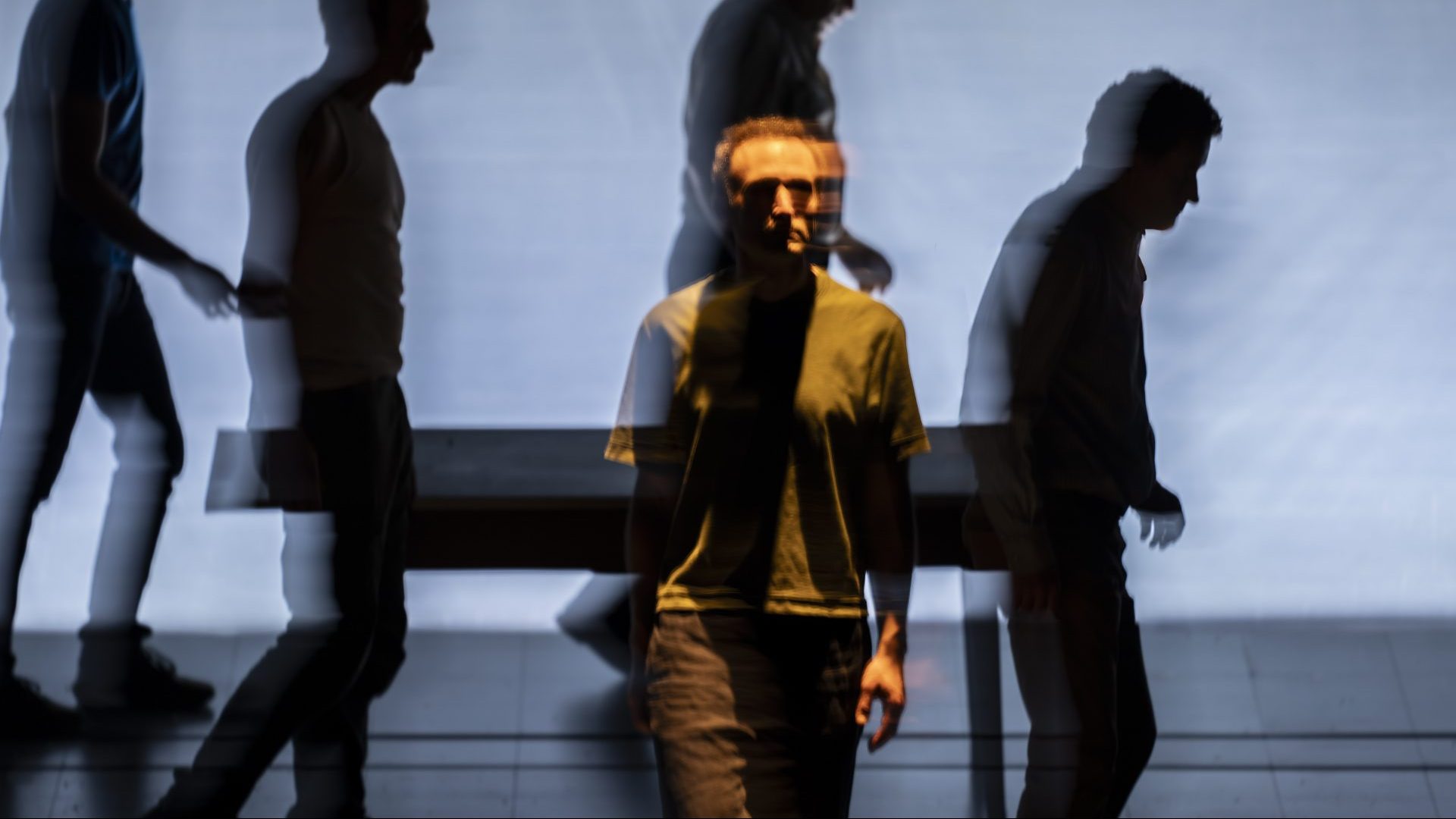Mnemonic
Olivier Theatre, National Theatre, London, until August 10
Simon McBurney’s revival of Mnemonic – a 1999 play by the Complicité theatre company he has worked with for four decades – will divide audiences. I went to see it with an old friend who took the view that it was brilliant, compelling, cutting-edge theatre – and seemed strangely unabashed when I pointed out she had fallen asleep for at least a quarter of an hour of it.
Having remained awake throughout the two hours it runs – there is no interval – I would qualify her verdict by saying it is all of the things she says it is, but only in parts. It kicks off with what seems like an interminable lecture from Khalid Abdalla in which his thesis is that what we remember – and don’t remember – is not a neutral act. We subconsciously choose our memories.
At one point, he invites us to put on the eyemasks that are placed on every seat, sit in darkness, and think back to what we were doing that day last week, last month and then to our earliest childhood memories. This is an interesting theme.
I read not so long ago that a group of scientists had concluded our brains seem conscious of Google and recognise it is not necessary to remember, say, who played the title role in Oppenheimer as we can sub-contract that task to the search engine. What we choose to remember is as a consequence often very personal to us since this is the sort of information that is not going to be accessible elsewhere.
There was a leaf as well as the eyemask in each of the little bags on our seats. Abdalla asks us to hold it and think of its vascular structure as signifying the links we have to our parents, grandparents and so on. All very thought-provoking, of course, but I did feel like I was sitting through a lecture, rather than a theatrical production. I also wondered if it was worth all the trouble to get these little bags on to each seat for every performance to make a couple of rather obvious points.
The show does, however, patchily come alive afterwards when Complicité start to do what they are best at, which is to say making it a lot more visual. The discovery of a corpse in an icy terrain that turns out to be more than 5,000 years old gives it momentum. The various tests conducted on the corpse show his lifestyle wasn’t so very different from our own.
There is a particularly funny scene in which a group of self-important scientists from different countries speak in their own languages about what they have learnt from it and can’t agree about anything and Tim McMullan’s boffin helpfully points out when they have attempted a joke.
McMullan is on great form, but then he always is, and Abdalla does what he can in a rather thankless role.
Plays, like roses, almost always benefit from cutting and I think taking half an hour out of this one would improve it immeasurably. I’m currently having to take that out of a radio play, and, as ever, the process is clarifying and refining. As I think my companion’s brief nap demonstrated, a playwright shouldn’t ever overstay their welcome in anyone’s head.












